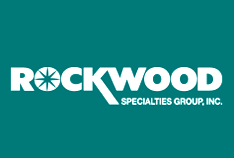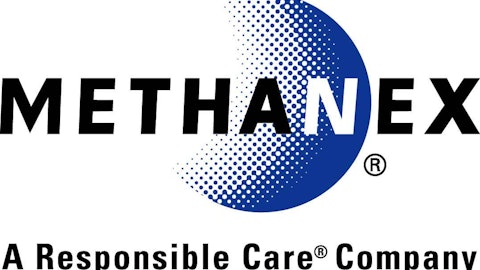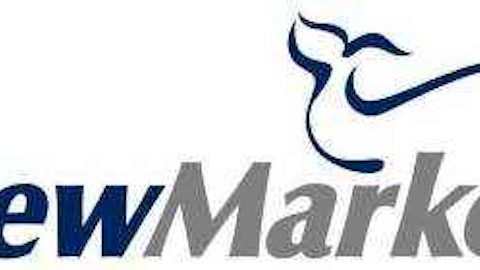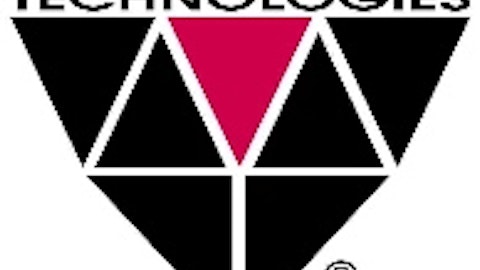
This deal is sure to have global repercussions. It may be the first of several asset sales that Rockwood Holdings, Inc. (NYSE:ROC) initiates in an effort to raise capital and re-calibrate around its core surface treatment and lithium manufacturing businesses. For Cinven, it represents a chance to secure a strong asset at a fair price and spearhead an expansion that could create billions of dollars in value for the firm. Moreover, it will almost certainly cause investors to reevaluate the broader industry in which these companies operate.
Rockwood Holdings vs. the Competition
Rockwood Holdings, Inc. (NYSE:ROC) competes with a number of notable companies that operate in the coatings and advanced chemicals sub-industries. Although it would be possible to compare the firm with more than a dozen similar concerns, this comparison will focus on the strengths and weaknesses of Axiall Corp (NYSE:AXLL) and PolyOne Corporation (NYSE:POL).
Rockwood Holdings, Inc. (NYSE:ROC) is the largest of these three firms. Although its market capitalization has fallen somewhat since the announcement of the CeramTech-Cinven deal, it still has a valuation of around $4.8 billion. By contrast, Axiall and PolyOne Corporation (NYSE:POL) have respective valuations of $3 billion and $2.5 billion. Meanwhile, Rockwood and Axiall Corp (NYSE:AXLL) posted identical 2012 revenues of $3.5 billion but offered up divergent earnings tallies: Whereas Rockwood enjoyed a tidy profit of $326.6 million, Axiall managed a much narrower haul of just $81.5 million. With a profit of $67 million and revenues of about $3 billion, PolyOne had a very narrow margin as well.
Given its competitors’ relatively weak earnings, it should not come as a shock that Rockwood Holdings, Inc. (NYSE:ROC)’s stock is the most expensive of the bunch. Its price-to-book ratio of 3.38 exceeds that of Axiall by a factor of three and comes in at a full point higher than that of PolyOne. Rockwood’s balance sheet is also in slightly better shape than Axiall Corp (NYSE:AXLL)’s and PolyOne Corporation (NYSE:POL)’s. The New Jersey-based firm has long-term debts of $2.2 and cash reserves of just under $500 million. By contrast, Axiall has about $23 in debt for every $1 in cash on its books. PolyOne has a slightly less egregious debt ratio: Its $1.1 billion obligation sheet clashes with a reserve of about $168 million.
How the Deal Will Happen
According to reports, Cinven will pay about $2 billion in cash to purchase the bulk of CeramTech’s assets. Since Cinven is a private firm, shareholders will not have the opportunity to earn an arbitrage premium or participate in CeramTech’s short-term growth. At the moment, it looks as if Cinven will keep CeramTech’s management team in place and maintain its existing portfolio of globally distributed research and production facilities. Cinven has also expressed interest in expanding CeramTech into new markets.
What It Means for CeramTech and Cinven
Rockwood’s management team has reaffirmed its commitment to Rockwood’s core lithium and surface treatment divisions. As such, CeramTech is free to expand and improve its high-performance ceramic products under Cinven’s guidance. Cinven has made a number of aggressive statements about CeramTech’s potential and appears eager to expand its global footprint. Interestingly, the company may begin its expansion by opening accounts and manufacturing centers in Rockwood Holdings, Inc. (NYSE:ROC)’s home market. Cinven’s management team has also identified East Asia as a potential expansion target. Although investors should not expect such a move in the coming months, it is entirely possible that Cinven could spin off CeramTech as a publicly traded firm in the not-too-distant future.




